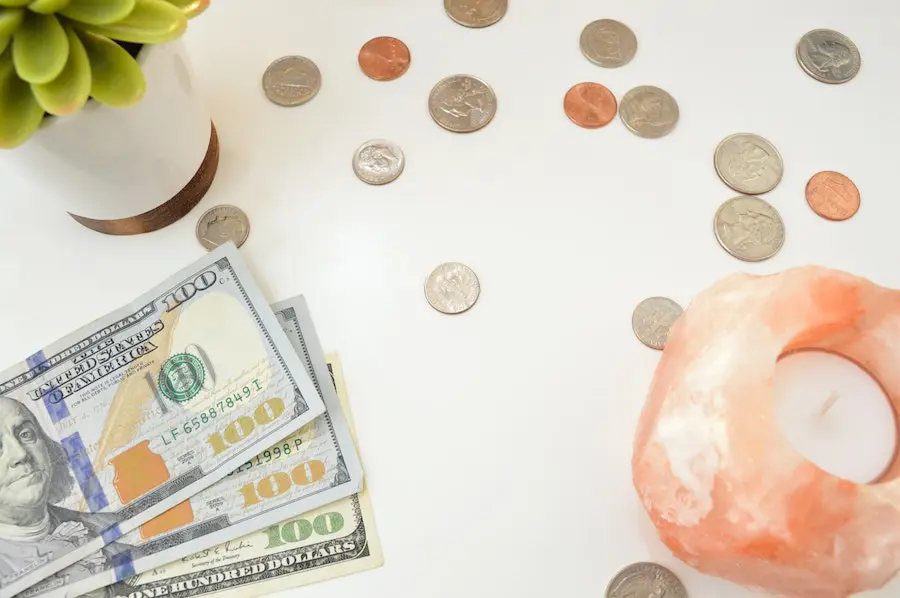Last Updated on: 30th August 2022, 04:22 am
Is a PhD worth it? That depends on who’s asking. If you’re talking about the educational benefits, the opportunity to make new discoveries, or the chance to make a difference, then the answer is almost always a resounding “yes.” However, if you’re talking about purely economic benefits, the answer is almost always “no.” A combination of them both? It depends.
In this article, I’ll explore two answers to the question, “Is a PhD worth it?” and the reasons for each. Ultimately, whether a PhD is worth it for you depends on your reasons for getting it. So let’s dive into those.
Is a PhD Worth It?
A PhD is worth it when what you gain–by way of knowledge, experience, credentials, and opportunities–is more valuable to you than what you gave up in order to get it. In terms of time, money, cost to relationships, and stress, a PhD costs an incredible amount. So what makes it worth the cost? Let’s explore that below.
When a PhD Is Worth It
Here are some of the reasons a PhD is worth it for some people.
Learning

Is a PhD worth it if you’re motivated by learning? Absolutely. A PhD program is one of the most intense learning opportunities available anywhere. If you are passionate about a certain subject and want to work at a high level in the field, then a PhD program is the right bet.
As one former PhD candidate said to me, “There’s so much learning that happens. I didn’t finish but I still think it was worth it to do the program because of all the things I learned about my subject area and about research and about myself. All the things I learned about how I related to the topic.”
Critical Thinking
When you go through a PhD program, you become a much better consumer of information–and not just academic information. You begin to question, “where did that come from? What’s the source?” This includes advertisements, news, and anything else you may be reading or listening to.
You also understand what studies are actually saying. You’re better able to understand research and consider its implications and shortcomings.
Respect

Just having a PhD affords you a level of respect and assumed expertise that is difficult to come by. We used to have calling cards–that was the way people introduced themselves to a new place, which would come along with recommendations from friends. Now a PhD takes the place of that.
Generally, people have positive assumptions about you if you have those letters after your name. You’re controlling what people think about you just by having those three letters after your name.
For example, If you want to publish a book, having a PhD in the field you’re writing about you’re much more likely to be published. And once you’re published, more likely to be promoted, interviewed about your book, etc. Having a PhD can also open you up to grant opportunities, giving you credibility for these types of opportunities.
Social Change
For better of for worse, having this credential is one of the ways that people run the world. It gives you more social capital and economic power. If used for the betterment of the community, this can be a huge opportunity to affect positive social change. It puts you in a position to make changes to some things. In education, it can put you into leadership positions.
Confidence

Besides being recognized as an expert, having a PhD can also give you the confidence to go out and do things that you wouldn’t have done before. As one of society’s experts, you are trusted to be on the cutting edge of your area of expertise. Whether that means starting a business or non-profit, writing a book, giving talks, or something entirely different, you can make great strides. It’s not just because society trusts you, but having a PhD increases your trust of yourself–and your moral responsibility to use the power of your position to benefit others.
Ability to Get Through Anything
A PhD program is one of the most challenging experiences you can put yourself through. By going through the rigorous process of getting a PhD, you gain the confidence and experience necessary to handle challenges in just about every other area as well.
Academic Career

If you want an academic career today, you’ll pretty much need a PhD. Community colleges used to hire people with master’s degrees. Now when they’re searching, they pretty much ask for a PhD. While a PhD can’t guarantee an academic career, it is a prerequisite.
Non-Academic jobs
If you want more flexibility in the work that you do, a PhD helps. Many PhDs go on to do consulting work in their field.
A lot of organizations need people with PhDs for accreditation purposes. This is true of colleges, of course. But there are also other organizations, like consulting firms. They need a high number of people with PhDs to give the organization credibility.
Intrinsic Reward
A PhD program is a level of rigor that not many people get to. Finishing it produces an intrinsic reward that comes from accomplishing something extremely difficult. There’s a feeling of accomplishment that you don’t get with anything else. It’s not an easy thing to do, and there’s some reward in that.
When a PhD Is not Worth It
The rewards for a PhD may be great, but it can also cost an incredible amount, in all areas of your life. Let’s consider these costs.
The Cost of Not Finishing

Fifty percent of the people who start a PhD program don’t finish. Nobody goes into it thinking “i’m not going to finish,” but half of them don’t. It’s incredibly expensive to not finish since you don’t get the payoff that comes with the degree.
“I got a lot of psychic rewards, but I’m still paying lots of money in student loans and will be for the rest of my life–and will be for the rest of my life,” said one former PhD candidate who did not complete her program.
Will you be totally devastated financially or otherwise if you don’t finish? That’s a very real possibility, so it’s important to consider what the consequences would be, even if you fully intend to finish. You have to ask yourself that question, is it worth it if I don’t end up with a degree?
Family Sacrifice
Sacrifice to the family is a big reason why a PhD program may not be worth it. Some people get divorced during the process–not only because it’s so much time away from the family but also because the person getting the doctorate is very intellectually focused, and that can be hard on a relationship.
If you have children, the sacrifice can be double. You will miss baseball games, recitals, vacations, and weekends. You’ll be in your PhD program for several years, and you won’t be able to be as present in your children’s lives for that time period. While many parents do successfully complete PhD programs and manage to be wonderful, loving parents at the same time, it’s an incredibly difficult balancing act.

Foregone Earnings
When in a PhD program, you don’t get to work full time at your regular job for around 3-6 years. There are PhD programs that allow you to work while you’re doing it, but it’s very difficult. And if you have a family too? That’s incredibly difficult. There are some professions where people make enough yearly income where it’s not financially worth the lost income to get a PhD. That’s why you don’t see many Accounting PhDs.
Proving Yourself
If you’re getting a PhD in order to prove to parents or an ex-boyfriend that you have value, that’s not going to get you through it. It doesn’t carry you through the whole degree. It might give you a lot of energy at the beginning, but it won’t last for three or six years. It won’t provide you with the resilience and fortitude necessary to make it through the toughest times. And anyway, counseling is cheaper.
Other Costs
I know from experience that getting a PhD increases your cheez-it consumption. Alright, that may just have been me. But it is important to consider what the costs will be to you in your particular situation. Give these costs serious consideration.
Is a PhD Worth It? An Economic Perspective

Will your salary go up enough to justify the cost? The answer is almost universally “no.”
If you’re going to continue working for the same company, you could ask them how much more your pay would be (if they would raise it) if you had a PhD. You could amortize that over how many years you plan to work.
However, generally speaking, the economic gains do not justify the economic costs.
If you can combine the economic and psychic reasons, it can be worth it for some people. But if you’re just doing the numbers in terms of how much you’ll make and how much you’ll pay, it’s probably not worth it.
Getting a PhD will likely boost your income and it does give you more options, but that may not justify the costs, economically speaking. Unless there are other bolstering reasons, I’d say it’s not worth it.
 Waiting to Get Your Dissertation Accepted?
Waiting to Get Your Dissertation Accepted?


